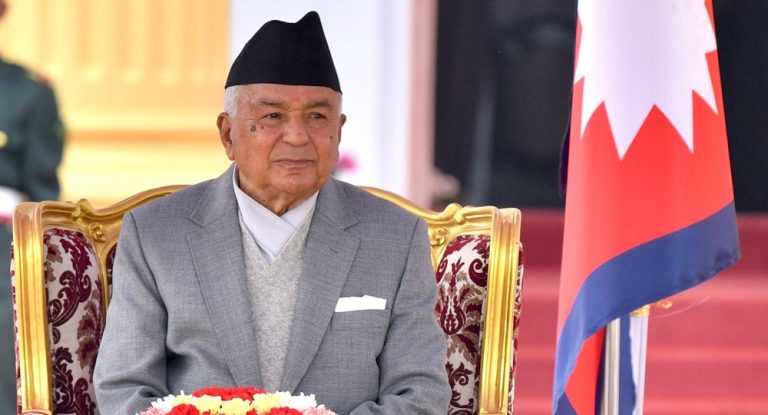President Ramchandra Paudel has called on all Nepalis to unite and take a strong stand against caste-based discrimination and untouchability. He made this appeal in a public message on the occasion of the National Day for the Elimination of Racial Discrimination and Untouchability, observed annually on Jeth 21, which falls on June 4 in the Gregorian calendar.
In his message, the President wished peace, happiness, and prosperity to all Nepalis living in the country and abroad. He stressed that caste-based discrimination is a crime that violates human dignity, social values, and national unity. He said that such practices weaken the foundations of democracy and social harmony.
President Paudel urged all individuals, families, communities, political parties, government bodies, civil society, and media organizations to act with greater responsibility in fighting untouchability. He highlighted the need for cooperation at all levels to remove racial bias from everyday life and behavior. He also pointed to the role of education and awareness in ending harmful traditions and promoting equality.
The President reminded the nation that Nepal’s constitution guarantees social justice and equal rights for all citizens, regardless of caste. He encouraged everyone to work together to build a society that treats people fairly, supports equal opportunities, and values unity over division.
He also expressed hope that the National Day for the Elimination of Racial Discrimination and Untouchability would serve as a time for reflection and positive action. He believes that this day should inspire change not only in laws and policies, but also in people’s attitudes, behaviors, and social customs.
Nepal was officially declared a caste-discrimination-free nation on Jeth 21, 2063 BS, which corresponds to June 4, 2006. This historic announcement marked an important step toward ending the centuries-old practice of untouchability. The National Day now honors that decision and encourages the continued fight for equality.
President Paudel noted that progress has been made since the declaration, but challenges still remain. In many parts of the country, people from marginalized communities continue to face unfair treatment. He called for unity and mutual respect to close these gaps and create lasting change.
He emphasized that social change requires action from both individuals and institutions. Changes in laws are important, but true equality comes when people change the way they think and act. The President believes that by promoting empathy, respect, and fairness, Nepalis can create a better and more equal society.
He ended his message with a call for everyone to join hands in building a just, equal, and discrimination-free Nepal. His words reflect a national commitment to dignity, harmony, and social reform.


